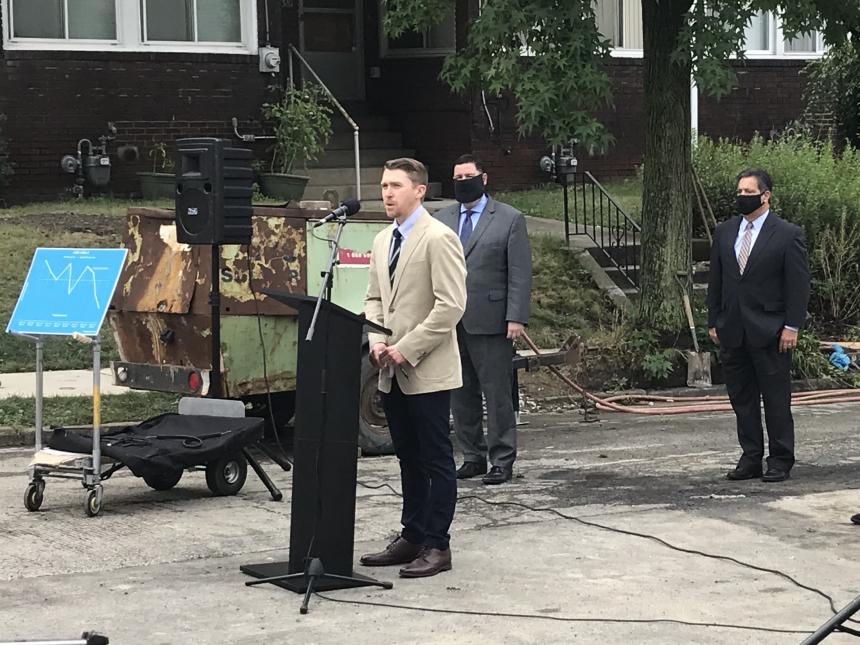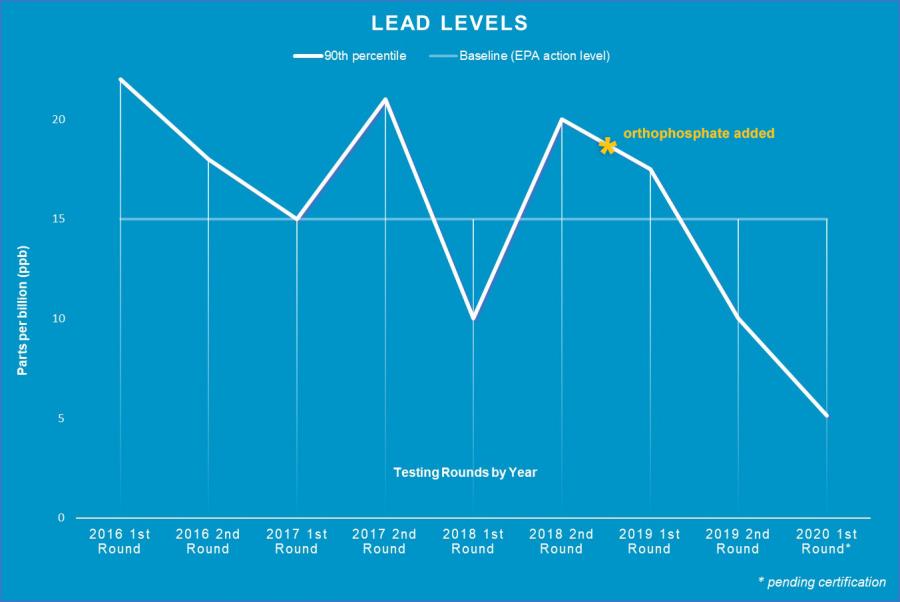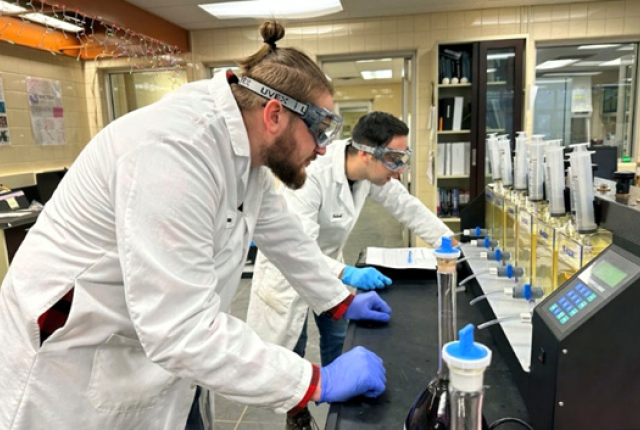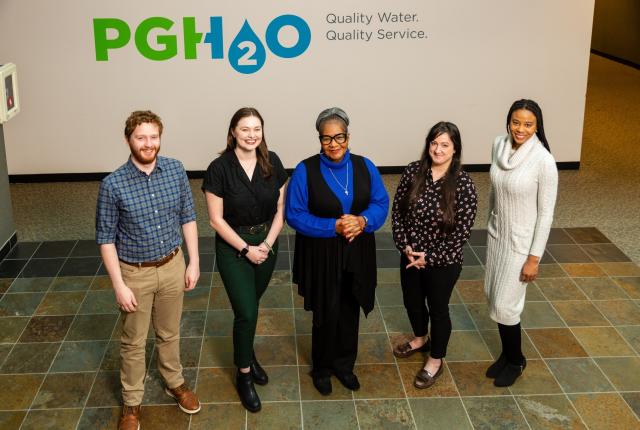 PWSA Executive Director Will Pickering (front) and Mayor William Peduto (back) at July 22 press conference.
PWSA Executive Director Will Pickering (front) and Mayor William Peduto (back) at July 22 press conference.
On Wednesday, July 22 Mayor Peduto and PWSA hosted a joint press conference to announce that our most recent round of regulatory compliance testing resulted in a 90th percentile lead level of 5.1 parts per billion (ppb).
Samples collected from 158 homes with lead service lines or plumbing are the lowest levels in recent history, demonstrating the effectiveness of adding orthophosphate to PWSA’s water treatment process.
The 90th percentile result of 5.1 ppb is approximately 10 ppb below the U.S. Environmental Protection Agency (EPA) and Pennsylvania Department of Environmental Protection (DEP) lead action level of 15 ppb. This is PWSA’s lowest lead testing result in over 20 years and the second consecutive round of testing below the action level. The results indicate that we are effectively reducing lead levels across our water service area.
In April 2019, we began adding orthophosphate to reduce lead levels in drinking water while continuing to replace thousands of lead service lines. Orthophosphate is a food-grade additive that forms a protective layer inside of lead service lines, creating a barrier between the lead pipes and the water flowing through them. It is approved by the EPA and successfully used in water systems across the world. Orthophosphate was selected by PWSA and approved by DEP after an extensive, year-long study of treatment alternatives.
 Consecutive rounds of regulatory lead compliance testing from 2016 to 2020. With the addition of orthophosphate in April of 2019, we are seeing a consistent reduction in lead levels.
Consecutive rounds of regulatory lead compliance testing from 2016 to 2020. With the addition of orthophosphate in April of 2019, we are seeing a consistent reduction in lead levels.
To better understand and implement orthophosphate in the system, we assembled an experienced team of staff, as well as external water quality scientists and state and federal regulators. This group monitors hundreds of additional samples in addition to the compliance testing announced today to ensure that orthophosphate remains effective.
“This latest round of testing brings us back into compliance with state and federal regulations, and closes an unfortunate chapter in PWSA’s history,” said PWSA Executive Director, Will Pickering. “Ensuring the safety of your water is our number one priority. We’re aiming to restore our customers’ trust by continuing to optimize water treatment and replacing the remaining lead pipes in our system.”
With two consecutive rounds of testing below state and federal action levels, we are no longer required by law to replace seven percent of the lead service lines in our system each year. We will however continue to conduct aggressive water quality testing and work towards replacing all lead service lines by 2026.
More information about our Community Lead Response and orthophosphate is available at lead.pgh2o.com.


